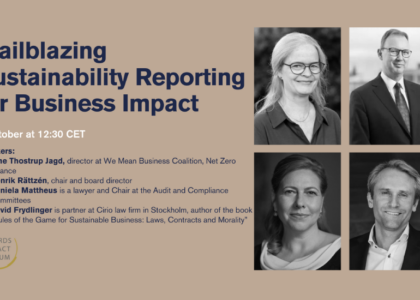The “Chief Economists Outlook” report by the World Economic Forum, May 2024, presents an analysis based on the latest economic research and surveys from leading chief economists. Key points include:

1. Economic Sentiment: There is cautious optimism about global economic recovery with a significant decrease in economists expecting weakening conditions, from 56% in January to 17% in May. However, geopolitical and domestic political factors remain significant sources of economic volatility.
2. Business Challenges: Businesses face growing complexity and volatility, with core economic factors, geopolitical risks, and domestic political dynamics influencing corporate decision-making. Innovation, efficiency improvements, and cautious capital allocation are strategies to navigate these challenges.
3. Long-term Growth Prospects: There is optimism for global growth to return to 4% within the next five years, driven by technological transformation, AI, and the green energy transition. However, geopolitical and domestic political tensions, debt levels, and climate change are seen as potential growth impediments.
4. Regional Growth: Optimism about growth varies by region. The US shows notable improvement, with 97% of economists expecting moderate or stronger growth, up from 59% in January. Asia is also expected to see moderate growth, though China remains an exception with weaker expectations. Europe continues to face weak growth prospects, while other regions show slight improvements.
5. Inflation Trends: Global inflation is easing, with headline inflation projected to settle at 5.9% in 2024. However, inflationary pressures and expectations vary widely across regions, with advanced economies faring better than emerging markets.
6. Policy Responses: Monetary policy is expected to become less synchronized, with some regions likely to loosen their stances. Fiscal policy continuity is anticipated in most regions, with exceptions like China, where further stimulus is expected.
7. Effective Policies: Key policies for boosting growth include innovation, infrastructure development, education, and looser monetary policies. There is a higher perceived impact of these policies on low-income economies compared to high-income ones.
The report highlights the complexities and regional variances in the global economic landscape, stressing the need for tailored policy responses to foster sustainable growth.
Outlook Sustainability and AI

The report report indicates the impact of AI and sustainability in several sections:
Sustainability and Green Transition: The report highlights that the green and energy transition is expected to be a significant driver of growth in high-income economies. About 70% of respondents believe this transition will have a positive impact on growth in high-income economies, while 42% expect a positive impact in low-income economies. There is a recognition of the complexity and high costs associated with the green transition, particularly for lower-income economies (pages 20-21).
AI and Long-term Growth: The chief economists are optimistic about the role of AI and technological transformation in driving growth, particularly in high-income economies. About 81% of respondents expect AI to positively impact economic growth over the next five years, although views are more divided on its impact on low-income economies (pages 19-21)
AI and Volatility: The report mentions that the majority of chief economists do not expect rapid technological advances, specifically AI, to cause significant economic volatility in the short term. Over two-thirds of respondents are against the idea that AI will be a source of volatility this year (pages 5-8)
These sections underscore the varying expectations and impacts of AI and sustainability initiatives on both short-term economic stability and long-term growth prospects.
How will this impact your industry, your business strategy and your board work?
Learn more:
WEF Chief Economist Outlook May 2024
Upcoming Events and Programs
Micro Learning from Climate Governance Initiative on Climate Governance
About Boards Impact Forum
For board members – join Boards Impact Forum (free of charge for Board Members) and help support and partner with our important initiative, read more here
You can also sign up for a prompt of the start of the next Boards Oversight of Responsible AI programand A prompt of the start of the next Boards Sustainability program,
Events arranged by Boards Impact Forum in collaboration with World Economic Forum (Non-Profit Board Network, partnering with Board Networks, INSEAD Corporate Governance Centre, Digoshen , and Next Agents ).








Recent Comments